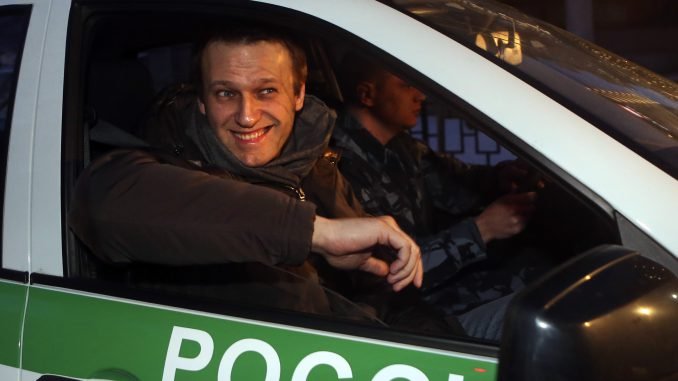
Nerijus Maliukevičius of the International Relations and Political Science Institute at Vilnius University thinks the move to pronounce the sentence a month early makes sense from the point of view of the Kremlin.
“It seems that keeping the rouble up is a difficult task and who knows what might happen before 15 January [when Navalny’s sentence was originally expected]. This could potentially attract even more resentment and more masses to the protests. Therefore such haste with pronouncing the verdict, to me, makes perfect sense, from the point of view of the Kremlin,” Maliukevičius told the LRT radio programme “60 minutes”.
Navalny’s brother – human collateral
Oleg Jerofejev, chief editor of rudelfi.lt, thinks that the court might have moved forward Navalny’s sentencing because the Russian government got scared of the mass protests that had been planned for 15 January.
“From the legal perspective, the verdict does indeed sound somewhat absurd, though I am not a lawyer. It’s hard to say, but the absurd always has an explanation in real life. I think the explanation is the following: Vladimir Putin truly believes that Navalny is a serious opponent,” according to Jerofejev.
Maliukevičius agrees, saying that giving Navalny a suspended sentence rather than jail time was a clever move. One way for the Kremlin to deflate the potential protest momentum was to completely acquit the famous activist, although a suspended sentence comes close to that. However, a custody sentence pronounced on that same day for Navalny’s younger brother Oleg means that the Kremlin keeps him as human collateral, the political scientist says.
“If you look at the practices of security agencies and the KGB, you’ll see that’s not a new tactic. In the Soviet era, there was even this tradition: when the authorities allowed someone to travel abroad, they’d make sure to have someone left behind as insurance – family members or children,” says Maliukevičius, adding that the Kremlin has chosen a sophisticated and cruel method to control Navalny.
Demonstration of power
After discovering about the early sentencing, pro-Navalny activists, who had planned to protest on 15 January, organized an action on 30 December. Some 2,000 people gathered in Moscow’s Manezh Square in freezing cold, more than 200 were detained by the police, including Navalny himself.
Jerofejev, who was following closely newsfeed on the protest, says that some opposition leaders, who planned to attend the 15 January action, could not take part on Tuesday due to short notice.
Moreover, judging by news stories on Russian TV, Jerofejev says he noticed that there were many internal troops and police officers compared to the number of protesters.
“As I was following the newsfeed, I saw that Russia’s internal squads and the police in general were purposefully demonstrating power. A show of deterrence, an implied warning for people against coming. I don’t think this could prove a tipping point, but such social processes are difficult to predict, much depends on what happens next,” Maliukevičius comments.
According to him, sometimes too much resolve and aggression on the part of the authorities to squash unrest might incite even more resentment among the population and trigger an explosion. Jerofejev agrees, adding that high military and police presence is not just a demonstration of power, but also a sign that the government feels vulnerable.
No panic over rouble yet
Both Jerofejev and Maliukevičius mention one more reason why Navalny’s sentence might have been pronounced so early – economy.
“It seems that keeping the rouble up is a difficult task and who knows what might happen before 15 January. This could potentially attract even more resentment and more masses to the protests. Therefore such haste with pronouncing the verdict, to me, makes perfect sense, from the point of view of the Kremlin,” according to Maliukevičius.
Jerofejev says that the dramatic fall in the rouble’s exchange rate a week ago did not cause panic in Russia and that the Lithuanian media might have overplayed the shock. Ordinary Russians, he says, were confused rather than unsettled. However, should the rouble and economic troubles persist, this might result in a significant drop of household incomes, inciting popular resentment. According to Jerofejev, there is high chance that ordinary Russians will grow increasingly disillusioned with the government and look for ways to express their anger. Navalny’s sentencing might have provided just such an opportunity.

Be the first to comment